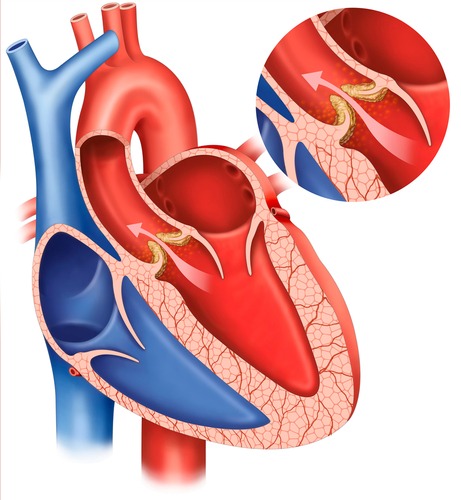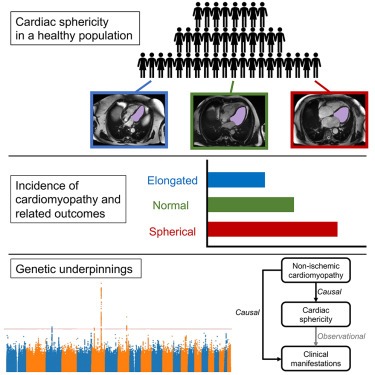Published on
Updated
Reading 2 mins.
According to an American study, aided by artificial intelligence, human hearts with the roundest shape would have a greater risk of presenting cardiomyopathy during their lifetime.
Advances in science, and in particular artificial intelligence, are gradually increasing our knowledge of diseases and their risk factors. A very recent study from Stanford University in California brings us new information on the shape of the heart: according to the imaging analysis of thousands of hearts from a biobank, the shape of your heart influences its health long-term. In detail, a more spherical (round) shape could be associated with a 47% higher risk of developing cardiomyopathy, a “heart muscle disease that makes it harder for the heart to pump blood to the rest of the body“.
A correlation between fitness and cardiovascular risk
Using artificial intelligence (AI) to analyze more than 38,897 MRI scans of healthy hearts from the UK Biobank, researchers examined a large biomedical database that includes information from 500,000 UK participants.

In particular, the researchers measured the roundness of the left ventricle, a generally cone-shaped heart chamber that pumps oxygen-rich blood to the body. Next, the researchers analyzed participants’ health records to identify those who had certain genetic markers linked to heart disease. They found a correlation between rounder shaped hearts and a predisposition to heart disease.

“Most people who practice cardiology are well aware that after a person develops heart disease, the heart will look more spherical”said Dr. Shoa Clarke, cardiologist and principal investigator, in a press release announcing the results. “But it turned out that the shape of the heart provides additional information about risk and genetics that is not captured by other measures.”
AI for imaging could be even more accurate
Beyond this important predictive information on cardiomyopathy, the study also points to the usefulness of MRI imaging now aided by artificial intelligence in the cardiac field. Medical imaging may hold more information, researchers say
“A key part of our work is that current core assessment strategies are good, but they were established decades ago, before the era of big data. Now we have the opportunity to think more broadly and ask us what other features of the heart can tell us about risk and disease biology”Clarke told Fox News Digital.
An inventory taken up by its co-author Dr. Ouyang who told the newspaper Medical that there is a large amount of untapped information that physicians are not currently using.
Results to be confirmed in other populations
Regarding this study, however, the authors indicated that more research is needed to say that the shape of the heart can or should be taken into account by doctors when making medical decisions for patient care. In addition, this study, although very large, is based only on a British population. “We expect our results to generalize widely, but it will be important to show that they can be replicated in other populations,” the lead author concluded.
As a reminder, in France, cardiovascular diseases are the second leading cause of death after cancer.

